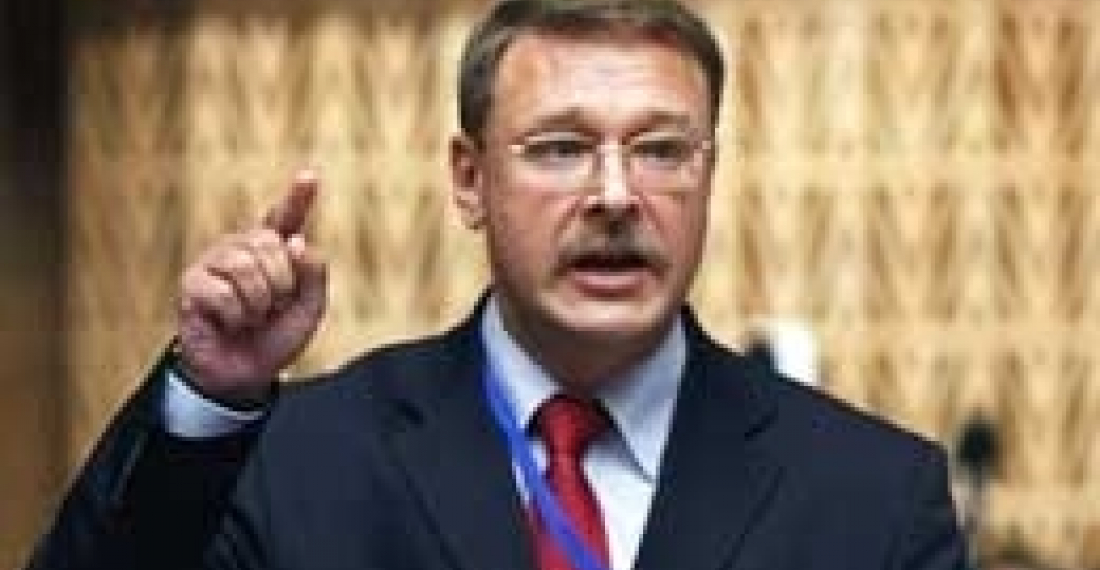I was skeptical about the work of the PACE Ad Hoc Committee on Nagorno-Karabakh from the very beginning, the head of the Russian delegation to PACE, the chairman of the State Duma's Committee on International Affairs Konstantin Kosachev said in an interview to ArmInfo.
"Even though I support the idea that PACE should be used as a means for establishing different types of a dialogue, including, one between the delegations of the countries having some mutual problems, this case was an exclusion as this situation is much too sensitive. Here much depends on the professional - not politicized - work of the OSCE Minsk Group. In fact, very few people know what is actually going on in that group. And this is good as one should better not hinder their work. The point is that most - perhaps, even all - of the people representing the relevant countries in PACE have no detailed information on what is going on inside the Minsk Group. So, the attempt to reproduce this format in PACE was initially ineffective. It would be just a duplication, with nothing to add," Kosachev said.
He noted that even though the committee format has diffused and has turned into an Armenian-Azeri one, it still lacks logic. "In this light, I understand and respect the position of the Armenian delegation and believe that nobody can force anybody to do something. One can just try to convince, but until there are convincing arguments why this committee should exists, I see no prospects for it. On the other hand, I am glad to see that the Armenian and Azeri delegations directly contact here, particularly, in the framework of the group led by me, the group of European Democrats, and do it quite successfully. I think that this is a much better format than some artificial committees," Kosachev said.







